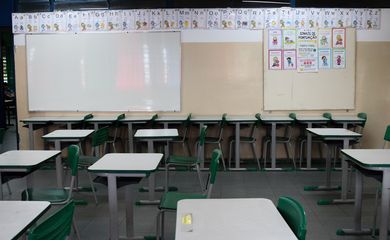Cell phone ban in Brazilian schools: 80% of adults back measure

A survey conducted by the Locomotiva Institute and QuestionPro reveals that eight out of ten adults (80%) believe cell phone use in schools should be banned. Among parents, 82 percent support this ban, as do 72 percent of respondents without children.

The perception of the need for a ban is evident across all adult age groups, but among those aged 61 and over, support for the restriction is even higher at 87 percent. “This is a widespread agreement in society; there is no divergence. This consensus spans gender, age, and all profiles,” explains Gabrielle Selani, quantitative research manager at the Locomotiva Institute.
Recently, the Ministry of Education announced that it is drafting a bill to ban cell phone use in classrooms. The issue is also being debated in the Education Committee of the House of Representatives.
The survey revealed that 90 percent of respondents believe children today no longer want to play outside due to their use of cell phones and television. Additionally, while 69 percent think the ideal age for a first cell phone is 13 or older, 86 percent believe young people are eager to get one before that age.
“A clear consensus exists regarding the ban on cell phones in schools, but in addition to that, we need to monitor the time and the content itself. We also need to be aware of what happens outside the school walls,” says Selani.
Respondents cited several negative effects of cell phone use in childhood, including technology addiction, heightened anxiety and depression, sleep disturbances, decreased school performance, challenges in social relationships, and exposure to cyberbullying.
The survey, conducted between June 24 and July 8, included 1,491 respondents nationwide, representing various regions and socioeconomic backgrounds. The margin of error is 2.5 percentage points, with a 95 percent confidence level.
According to the research manager at Locomotiva Institute, the survey can aid in crafting inclusive legislation on the topic. “The survey engaged with society as a whole, emphasizing the need for a universal approach. This issue will impact society as a whole., and we will all feel the consequences of uncontrolled screen use,” she stated.




